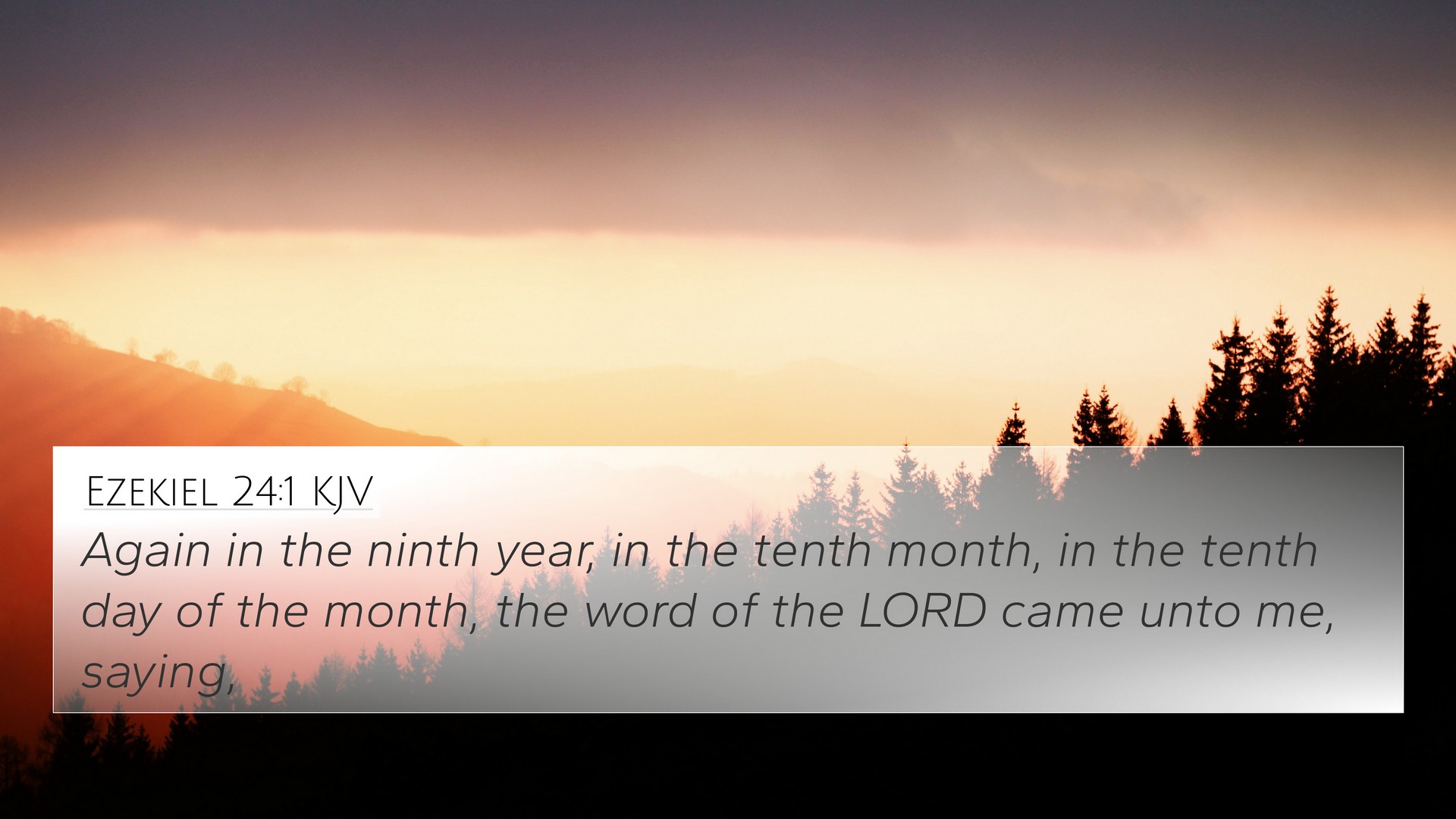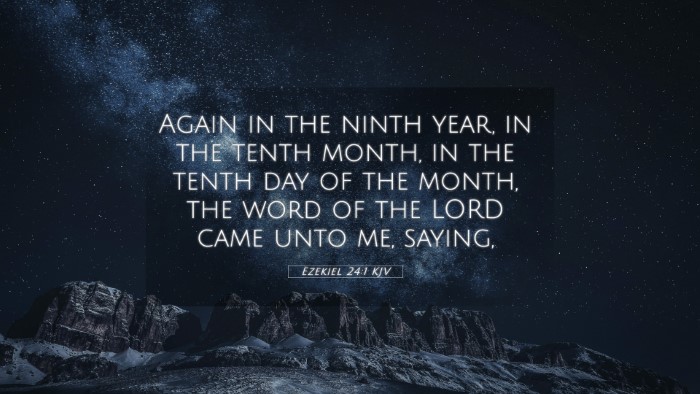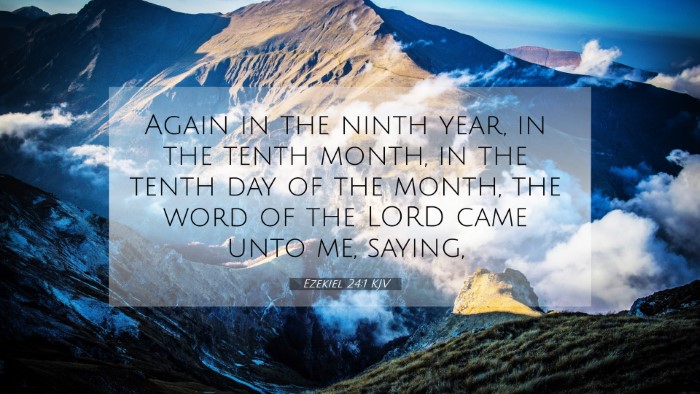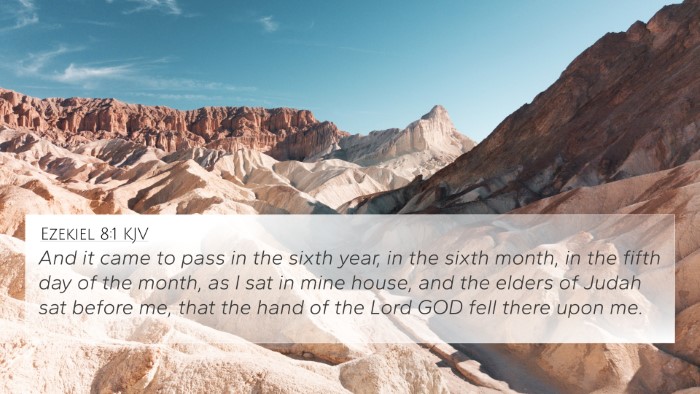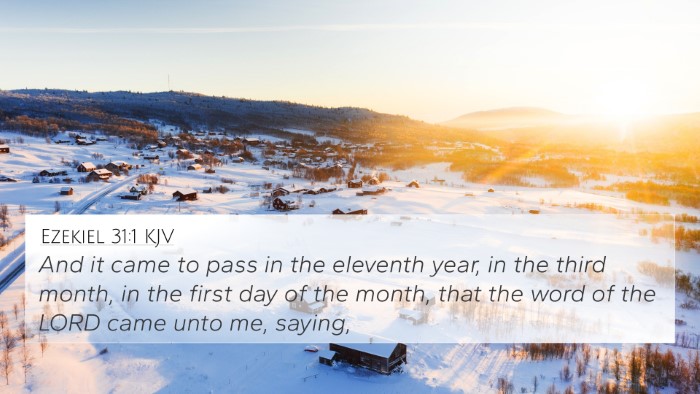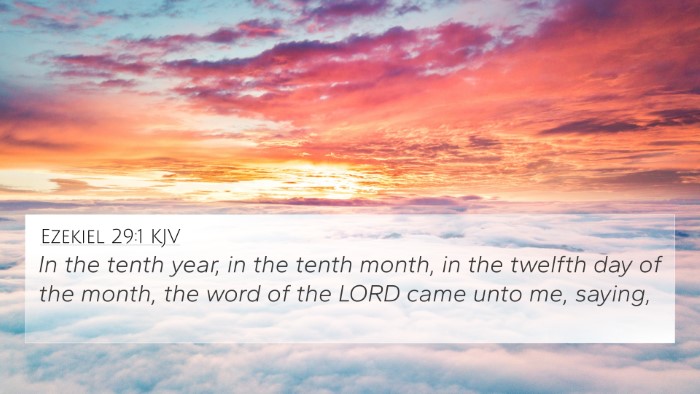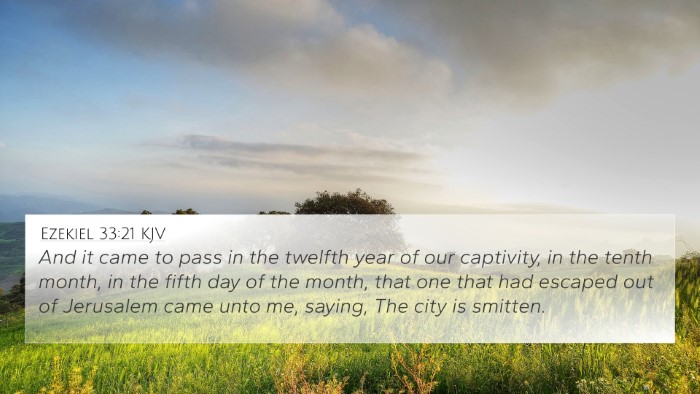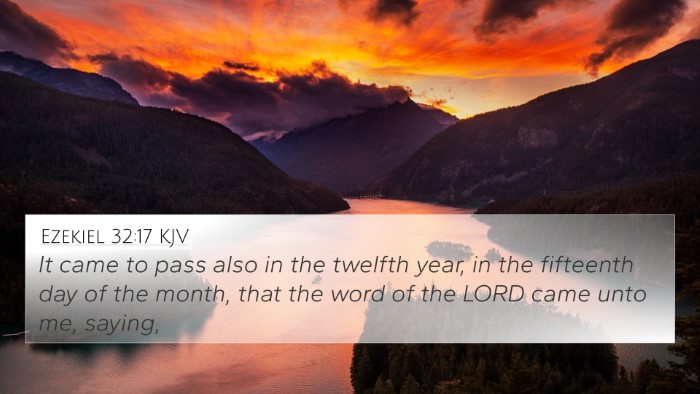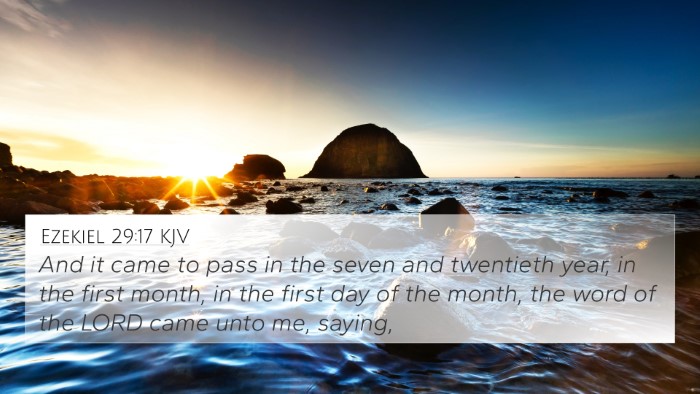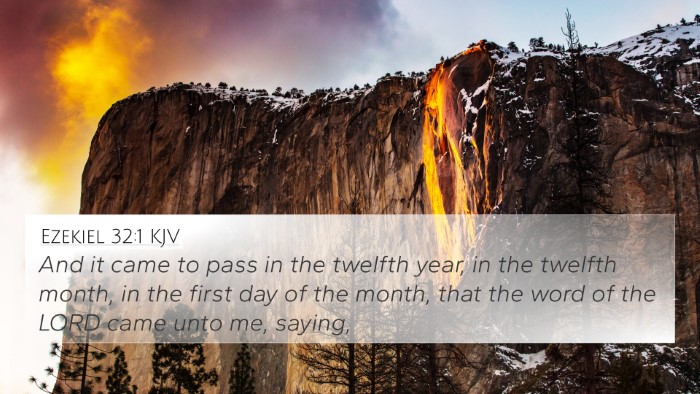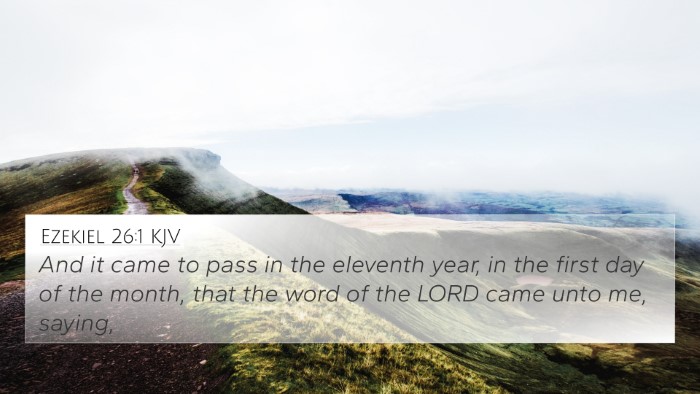Ezekiel 24:1 - Summary and Interpretation
Ezekiel 24:1 states: "Again in the ninth year, in the tenth month, on the tenth day of the month, the word of the Lord came to me, saying..."
This verse marks a significant moment in the prophetic ministry of Ezekiel, representing a critical point in the narrative of the destruction of Jerusalem.
Meaning and Insights
The mention of the exact time serves to contextualize the prophecy within a historical framework. Such precision indicates God's sovereign control over the unfolding events and establishes the significance of the message.
-
Historical Context: Public domain commentaries suggest that this account reflects the bleakness of a besieged Jerusalem, consumed by the consequences of disobedience. The pooling of different elements serves to remind believers of divine judgment and the urgent call for repentance.
-
Divine Communication: The phrase "the word of the Lord came to me" emphasizes the idea that God communicates His will consistently, and prophets serve as instruments of His voice to the people.
-
Chronological Significance: Notably, the dating of the message to "the ninth year, the tenth month" reflects the careful recording of time, indicative of the severity of the impending judgment and the beginning of the end for Jerusalem.
-
Prophecy Fulfillment: Ezekiel's prophecies are often dual in nature—serving immediate context and foreshadowing greater eschatological truths. This verse anchors the reader in the specific historical timeline while hinting at future ramifications.
Cross-References and Thematic Connections
Ezekiel 24:1 connects with several other Bible verses, providing a thematic exploration of God's judgment and prophetic revelation. The following verses reflect the broader context and the inter-Biblical dialogue surrounding this prophecy:
- Jeremiah 52:12-14 - Details the fall of Jerusalem, reinforcing the prophecy's urgency.
- Ezekiel 3:17 - Highlights the duty of the watchman, outlining the importance of prophetic warnings.
- Isaiah 15:1 - Indicates the impending doom that reflects the overall theme of judgment in the prophetic texts.
- Lamentations 1:1-3 - Illustrates the mourning and desolation following Jerusalem’s fall.
- Matthew 24:2 - Jesus alludes to the destruction of the temple, showing the continued significance of this judgment theme.
- Revelation 21:2 - Points towards new Jerusalem, hinting that destruction leads to new beginnings.
- Amos 3:7 - Emphasizes God's need to reveal His plans through prophets, akin to Ezekiel’s calling.
- Ezekiel 18:30-32 - Calls for repentance, underscoring the possibility of redemption even amid judgment.
Bible Cross-Reference Tools and Resources
Those delving into Scripture often seek various tools for better understanding connections between verses. Some effective resources include:
- Bible concordances that illustrate word and thematic relationships.
- Online Bible cross-reference guides to facilitate comprehensive study.
- Cross-reference Bible study methodologies to identify links between Old and New Testament themes.
- Bible chain references that help trace topics throughout Scripture.
Keywords for Further Study
If you are interested in exploring deeper connections or similar themes, consider using these long-tail keywords in your study:
- How to find cross-references in the Bible
- Identifying connections between Old and New Testament
- Comparative study of Pauline epistles
- Cross-referencing Psalms with New Testament teachings
Conclusion
Ezekiel 24:1 serves as a poignant reminder of the reality of divine judgment and the emphasis on prophetic revelation. By exploring cross-references and utilizing tools for Bible verse analysis, one can attain a robust understanding of Scripture's interwoven truths and themes. Seeking to understand the connections between Bible verses enriches one's theological grasp and nurtures a deeper faith journey.
